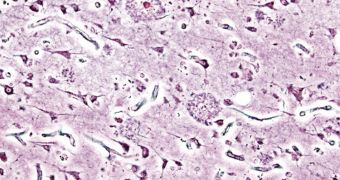An international collaboration of American and Italian researchers have recently determined that the human immune system plays a positive role in protecting our brains against the development of a neurodegenerative form of dementia called Alzheimer's disease.
Apparently, immune activity can contribute to preserving our ability to remember things, while at the same time protecting several others of our cognitive functions. These conclusions are based on a study of more than 700 patients.
All participants had their memory and cognitive functions analyzed via a standard clinical measure called the Mini Mental State Examination. Researchers found that the gene called CCR2 could be used as a top biomarker for memory performances.
At the same time, CCR2 is known to be a component of the immune system that removes large amounts of the beta-amyloid protein from the human brain. This molecule tends to create tangles in the brains of people suffering from Alzheimer's, and is considered to be a hallmark of the disease.
Several approaches to developing cures against this form of dementia are based on attacking the beta-amyloid protein, which means that the new conclusions could come in handy for many research teams.
The role the immune system plays in removing this dangerous protein has only been discovered in recent studies. Investigators had no idea that this was the case, and are now conducting more in-depth research on the issue, PsychCentral reports.
“This is a very exciting result. It may be that CCR2-associated immunity could be strengthened in humans to slow Alzheimer’s disease, but much more work will be needed to ensure that this approach is safe and effective,” University of Exeter expert and study leader, David Melzer, PhD, explains.
“Identification of a key player in the interface between immune function and cognitive ability may help us to gain a better understanding of the disease processes involved in Alzheimer’s disease and related disorders,” adds study coauthor, Lorna Harris, PhD.
In an associated study, conducted on mice, the team found that boosting the activity of the CCR2 gene led to better memory and improved cognitive functioning in the rodents. The mice had been engineered to be susceptible to the development of Alzheimer's.

 14 DAY TRIAL //
14 DAY TRIAL //